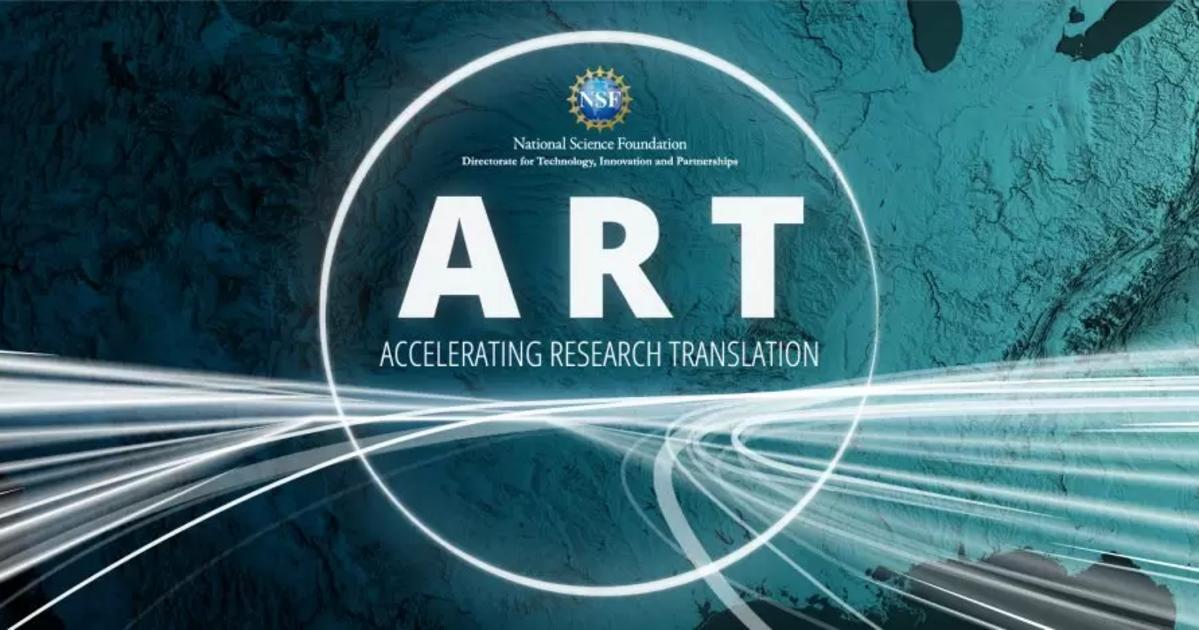LEXINGTON, Ky. (Jan. 25, 2024) — The National Science Foundation (NSF) has announced the first-ever Accelerating Research Translation (ART) investment in which the University of Kentucky will partner with George Mason University (GMU) to advance societal and economic impact of research by strengthening the infrastructure for scaling translational activities.
As part of NSF’s ART, more than $100 million will be invested in teams at academic institutions across the country to help accelerate the pace and scale of translational research to grow the nation’s economy.
Each ART awardee institution will benefit from having a partnership with a mentoring institution of higher education that already has a robust ecosystem for translational research. UK will serve as a mentor to GMU throughout their project titled “ART: Translating Research to Practice to Create Climate-Ready Communities Across Virginia.”
“We are honored to take part in this unique, collaborative opportunity through the NSF’s Accelerating Research Translational investment,” said Lisa Cassis, UK vice president for research. “UK is ready to use our depth of experience and resources to guide and support George Mason University throughout this critically important work. We look forward to translating science together to better our Commonwealths.”
“Climate-related disasters are becoming more frequent in Virginia, impacting communities across the state. This investment from the NSF positions our researchers to make an impact on the people of Virginia,” said Leah Nichols, executive director of GMU’s Institute for a Sustainable Earth. “We appreciate UK’s innovative and integrative approaches to translational research and believe our institutions’ directions on climate-related research are highly compatible.”
“I am thrilled to lead this opportunity for UK to collaborate with George Mason University as a mentor for their NSF ART grant and leverage our collective expertise to drive climate-related innovation in our communities,” said Taunya Phillips, director of the UK Office of Technology Commercialization (OTC), who will lead GMU mentorship.
UK offers researchers a variety of avenues to conduct their work across multifaceted areas of study with an emphasis on the community. Part of those efforts includes UK OTC’s Social Innovation team which focuses on using ingenuity to solve social challenges in Kentucky and the country.
Another program emphasizing community-building is the Urban Extension Initiative to support extension agents who serve within urban communities across the Commonwealth. It’s part of the Kentucky Cooperative Extension Service through the UK Martin-Gatton College of Agriculture, Food and Environment.
GMU’s goal is to create university-wide programming that enables the rapid, low-cost translation of the science that local governments, community-based organizations and local businesses need to support the development of sustainable, equitable and climate-resilient communities.
Each ART awardee will receive up to $6 million over four years to identify and build upon academic research with the potential for technology transfer and societal and economic impacts, to ensure the availability of staff with technology transfer expertise, and to support the education and training of entrepreneurial faculty and students.
Launched by NSF’s TIP Directorate, the ART program directly addresses a long-standing gap between academic research and the products, services and solutions Americans need.
“NSF endeavors to empower academic institutions to build the pathways and structures needed to speed and scale their research into products and services that benefit the nation,” said NSF Director Sethuraman Panchanathan. “The Accelerating Research Translation program in NSF’s new Technology, Innovation and Partnerships (TIP) Directorate identifies and champions institutions positioned to expand their research translation capacity by investing in activities essential to move results to practice.”
While ART seeks to build capacity and infrastructure for translational research at institutions of higher education (IHE) in the U.S., the program also aims to enhance the role of IHEs in regional innovation ecosystems and effectively train graduate students and postdoctoral researchers in translational research, benefiting them across a range of career options. Funding for the program was authorized by the CHIPS and Science Act of 2022.
Research reported in this publication was supported by the National Science Foundation under Award Number 2331271. The opinions, findings, and conclusions or recommendations expressed are those of the author(s) and do not necessarily reflect the views of the National Science Foundation.

